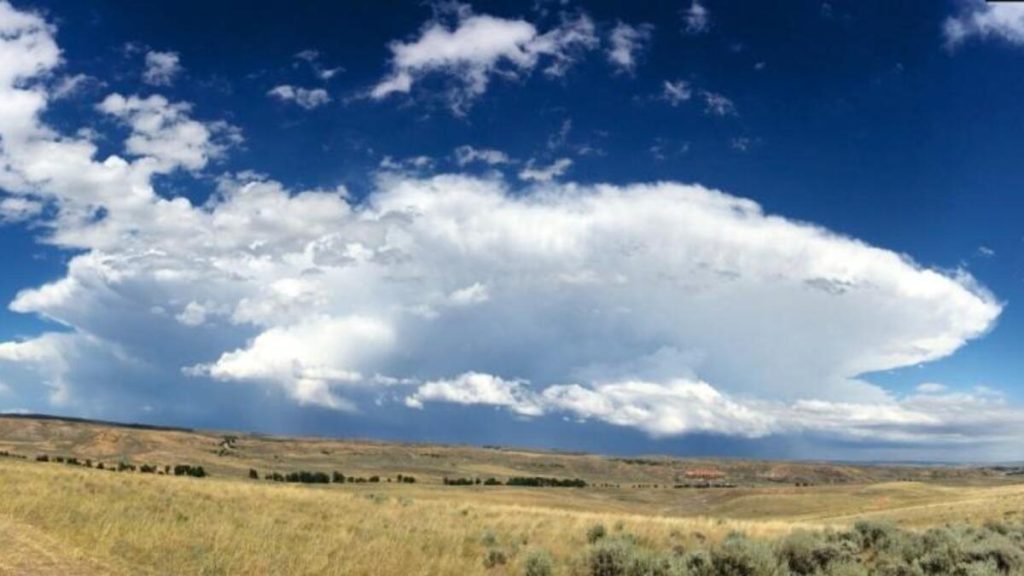Coal mines are so precious and rare that every government wishes to have one. The U.S. government’s wish might have just come true after they made a recent discovery in a small town in Wyoming.
If all goes well, this discovery holds rare-earth materials worth about 37 billion U.S. dollars! It would also mean a lower importation of these materials and better economic standing.
Discovery of Rare Earth Materials in Wyoming Coal Mine
Twelve years ago, ex-Wall Street banker Randall Atkins purchased a coal mine near Wyoming, expecting modest returns. As it turns out, Atkins may have unknowingly hit it big.
Government researchers discovered Brooks mine; recent tests revealed that it could be a potential site for rare earth materials. His $2 million investment is now valued at $37 billion, marking the largest unconventional rare-earth deposit in the U.S.
Ramaco Resources’ Rare-Earths Project
As expected, Ramaco Resources, Atkins’ company, is transitioning from coal mining to rare-earth extraction. The company is grabbing the opportunity to establish the first new rare-earths mine in the U.S. since 1952.
In turn, this would provide a great return on Atkin’s investment, thanks to the growing demand for rare-earth elements needed for electric vehicles and renewable energy technologies.
Hidden Treasures in a Coal Mine
The deposits found in the Powder River Basin site in Wyoming boast of heavy rare earths rather than light ones. Moreover, these heavy minerals are more valuable than their lighter counterparts, making them more expensive.
This unconventional discovery challenges the conventional wisdom of extracting rare earths only from hard rock deposits, marking a significant breakthrough that other countries may envy.
The Discovery of the Rare-Earth Materials in the Coal Mine
The world-class materials were discovered due to Romaco and researchers collaborating at the Energy Department’s National Energy Technology Laboratory. The government agency used top-notch equipment and combined data with artificial intelligence to predict unconventional deposits.
In addition, they serve as frontrunners and continue to open possibilities for other companies with unconventional critical mineral deposits.
Securing the Rare-Earth Materials
Today, China has the global market for these rare-earth supplies in the palm of its hand. However, the country recently restricted the export of minerals, sparking concerns for its traders.
Therefore, securing this mine and extracting its materials would reduce the dependence of the U.S. on China. Ramaco’s discovery also potentially contributes to the country’s strategic supply chain independence.
The “Mine to Magnets” Strategy
Soon after these minerals were discovered, Ramaco’s employees devised a plan to implement a comprehensive “mine to magnets” strategy.
This plan involves mining, processing, and manufacturing items essential for the green-energy transition and technological advancement. Examples of the things that can be produced are different permanent magnets for electric vehicles, wind turbines, and military applications.
The Impact of China’s Dominance in Rare-Earth Refining
As China currently controls the majority of rare-earth refining, this discovery could shake their trading power. Ramaco has decided to build a processing plant on its property to mine it directly without outsourcing to other countries.
This move aims to refine rare earths domestically, reducing dependence on overseas processing facilities.
Signia Capital Management’s Investment in the Coal Mine
Initially, Ramaco’s coal production targets and dividends attracted Signia Capital Management to invest in their coal mining. Following the rare-earths discovery, the company decided to increase its investment.
The strategic investment further emphasizes the importance of rare-earth elements in the company’s future endeavors. If the materials are also worth what the researchers say, Signia Capital would get a good return on their investment.
Challenges in Processing and Economic Viability
As with most mining productions, there are a lot of challenges that Ramaco might face in the coming months and years. Therefore, the success of the rare-earth project hinges on effective and economical processing.
The company has to choose the proper processing method to prevent the loss of hundreds of millions of dollars. They would also determine their economic viability in the coming months.
Randall Atkins’ Vision and Strategic Long-Term Approach
Randall Atkins is no stranger to the mining world. This is because his father was also involved in the industry throughout his career. He learned from his father’s successes and mistakes and implemented them strategically when running Ramaco.
Therefore, the company focuses on alternative uses for coal and aligns its commitment to avoiding political matters, emphasizing technology and scientific advancements.
Deep Drilling and Chemical Analysis
Time waits for no man, and Romaco got to business immediately. They started deep drilling, extracting samples to analyze the rare earth chemical characteristics and locations. The company is also conducting detailed analysis to determine the rare-earth elements’ optimal mining, extraction, separation, and processing techniques.
The results of these analyses would also determine their next steps and plans for the coal mine’s future.
The Community Impact of Ramaco’s Rare-Earth Project
In a recent interview, Atkins highlighted the positive impact on the community and younger scientists. He said, “What we’re doing here is neat to younger people. It’s novel, cutting-edge science and tech. Rare-earth deposits open up completely different horizons for this community.”
Furthermore, the project promises to improve the U.S.’s trading power and the economy as a whole.
